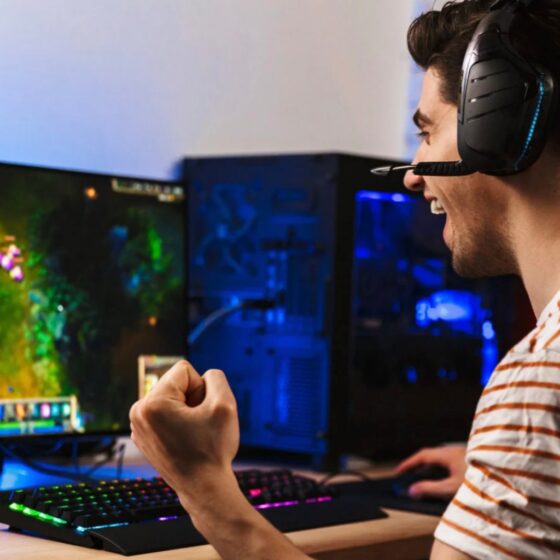In the immersive world of gaming, character creation games stand as a towering testament to the power of personalization and the boundless realms of fantasy. These best character creation games transcend mere entertainment, offering a canvas for self-expression and identification that resonates deeply with players. Customization in these games is not just a feature; it’s a gateway to a more intimate and engaging gaming experience. Through tailor-made avatars, players venture into customize character games, forging a unique bond with their digital counterparts. The significance of this cannot be understated, as it elevates the gaming experience from the commonplace to the extraordinary, making character customization games not just games, but a journey of self-discovery.
This article explores the multifaceted impacts of customization in character creation games, navigating through its role in enhancing player performance and engagement, to its social and psychological implications. By delving into how games with character customization leverage identification for a more profound gaming interaction, it sheds light on the dynamic between customizable character games and player identity. Furthermore, the narrative extends to predict future trends in avatar customization, setting the stage for an exciting evolution in the world of customizable avatar games. From the nitty-gritty of avatar customization to the overarching trends shaping the future of character creation, this exploration provides a comprehensive overview of why these games matter and what they hold for the future.

The Role of Customization and Personalization in Video Games
Understanding the Concepts
Customization in video games allows players to alter gameplay elements such as skills and classes, impacting how their character interacts within the game world. Personalization, however, involves aesthetic choices that do not affect gameplay but allow players to alter the appearance of their avatars, enhancing the personal connection between the player and the game.
Impact on Player Identity and Experience
The ability to customize avatars in video games enhances player identification, significantly affecting their experiences and loyalty to the game. This deep connection can lead to increased game time and a stronger sense of belonging within the game’s community.
Psychological Benefits of Customizing Avatars
Customizing an avatar can lead to increased motivation and enjoyment, as players see their creations as extensions of themselves within the game world. This identification can boost intrinsic motivation and self-efficacy, enhancing the overall gaming experience.
How Customization Affects Player Performance and Engagement
Studies on Customization and Game Performance
Research demonstrates that playing with customized avatars leads to increased identification with the avatar, enhancing intrinsic motivation and potentially improving game performance. This identification can influence player behavior, as seen in the Proteus Effect, where players’ actions align with the traits they perceive in their avatars, impacting negotiation tactics and even exercise habits.
Personalization as a Tool for Increased Engagement
Personalized game experiences, like those inLeague of Legends, are crafted to enhance player engagement by aligning game content with player preferences, utilizing collaborative filtering techniques to tailor recommendations. These personalized experiences are crucial for maintaining player interest and increasing the time spent in-game.
Case Studies: League of Legends and World of Warcraft
League of Legends employs algorithms like SPARFS to personalize game mechanics and suggestions, aiming to induce a flow state in players, which is characterized by heightened focus and enjoyment. Similarly,World of Warcraft allows players extensive control over their user interfaces, acknowledging that customization can profoundly affect player satisfaction and community involvement.
The Social and Psychological Implications of Avatar Customization
Building a Digital Self: Avatar as a Reflection of Identity
Creating a character in video games often mirrors societal gender norms, yet there is a growing shift towards more inclusive character options that allow for self-expression beyond traditional boundaries. This evolution in character creation games enables players to construct avatars that more accurately reflect their personal identity, challenging established norms and enhancing player engagement through creative freedom.
Customization Choices and Gender Representation
Historically, video game avatars have reinforced gender stereotypes, with female characters frequently designed to appeal to male fantasies through sexualized attire. However, recent trends show a push towards diversification, with players advocating for and creating attire that represents practicality and personal taste over traditional gender norms. This shift not only respects player identity but also broadens the appeal of games by acknowledging diverse player demographics.
The Psychological Comfort of Tailored Avatars
Avatars serve as digital proxies that players can tailor to express different facets of their identity, from the idealized to the realistic. This customization can be particularly empowering for individuals exploring their identity, offering a safe space to experiment with different aspects of their persona without real-world repercussions. The psychological comfort derived from these personalized avatars can significantly enhance the gaming experience, fostering a deeper connection to the game world and a more immersive play experience.

Future Trends in Video Game Customization and Personalization
Emerging Technologies and Their Impact
The gaming industry is on the cusp of a revolution with the integration of Extended Reality (XR) technologies, which dissolve the boundaries between the physical and virtual worlds, creating immersive experiences that blend the real with the virtual. Additionally, advancements in AI are set to redefine game development, enabling dynamic, evolving game worlds that adapt to individual player decisions and offer personalized narratives.
Predictions for Player Experience and Identity
As technology advances, the potential for creating rich, multi-layered virtual worlds is limitless, offering unprecedented opportunities for creativity and player identity expression. The rise of the metaverse and high-fidelity digital twinning are expected to enable new forms of social interaction and identity exploration within gaming, enhancing both the personal and communal aspects of gaming.
The Continuous Evolution of Customization in Gaming
Future gaming environments will likely see increased use of procedural generation and AI, allowing for an infinite variety of unique characters and more complex, realistic character behaviors. These technologies will enable games to offer unparalleled levels of customization and personalization, making each player’s gaming experience truly unique and deeply immersive.

Conclusion
Throughout this exploration, we have journeyed through the transformative landscape of customization in character creation games, shedding light on its pivotal role in enhancing player experience, engagement, and identity. From the profound psychological impacts to the predictive future trends poised to redefine gaming, the significance of personalization in gaming has been thoroughly examined. The narrative underscores not only the current benefits and implications of customization but also charts the exciting possibilities that emerging technologies like XR and AI bring to the gaming industry, promising an even more immersive and personalized gaming future.
As we look toward the horizon, the evolving synergy between player identity and game personalization becomes increasingly apparent, setting a dynamic stage for the next chapter of gaming. This evolution underscores the necessity of focusing on how customization can enhance the gaming experience, offering a roadmap for future innovations and research. With the continued push towards inclusivity and the breaking down of traditional narratives, the future of gaming holds limitless potential for exploration, identity expression, and engagement, reinforcing the essential role of personalization in the ever-expanding universe of gaming.
FAQs
What does personalization mean in gaming?
Personalization in gaming refers to the process of analyzing player behavior data to tailor content and experiences that align with the player’s individual preferences and needs.
How is character customization implemented in video games?
Character customization in video games allows players to modify and design their characters according to their preferences. This can include changes to physical appearance, abilities, and gear, enhancing the player’s connection to the game.
Which video game offers the most extensive character customization options?
Black Desert Online is renowned for its in-depth character customization, offering the most detailed options that allow players to fine-tune everything from broad physical attributes to minute facial features. Other notable games with significant customization features include Dragon Age: Inquisition, Fallout 4, Elden Ring, Baldur’s Gate 3, Starfield, Dragon’s Dogma: Dark Arisen, and Monster Hunter: World.
What is the term for creating a character in a video game?
The process of creating a character in a video game is commonly referred to as character creation or character generation. This involves designing a player character for use in a role-playing game, encompassing various aspects like appearance, abilities, and backstory.











